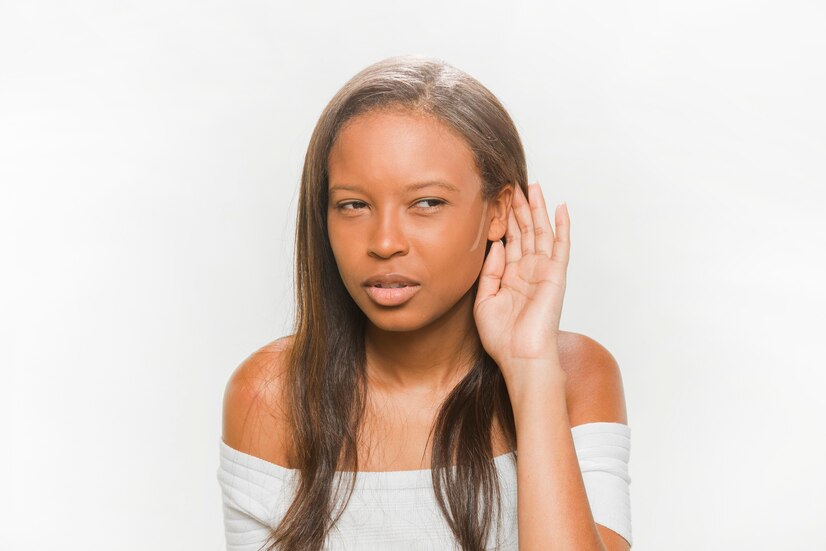Muffled Hearing: Causes, Symptoms, and Treatments


Muffled hearing is a common condition that is seen affecting many people worldwide. And it is usually accompanied by some feeling of stuffiness or blockage in one’s ear which reduces sound perception quality. Muffled hearing can be temporary or even permanent but needs treatment due to potential underlying issues.
Muffled hearing can be caused by multiple factors, some of which include excessive earwax buildup, ear infections such as otitis media(middle ear inflammation), and it could also be age related degeneration which is also known as presbycusis or noise induced loss, which is typically associated with long-term exposure to loud sounds.
Associated symptoms that are usually seen along with muffled hearing include impaired audio input, ringing sensations in the affected part also known as tinnitus, pain, and sometimes even discharge specially during infection episodes.
Recent research from healthcare institutions around the world shows that improved awareness and technological advancements have led to better patient outcomes after diagnosis. Each condition necessitates a distinct approach: treatments may range from basic home cures to professionally recommended ear drops to surgical interventions if necessary. These procedures successfully remove obstacles and restore auditory function, providing respite to those dealing with daily issues.

Muffled hearing is a condition in which sound quality is significantly reduced, resulting in the sense of blockage or stuffiness inside the ears. The impact of muffled hearing on daily life varies depending on degree and duration. It may be temporary - sudden in start and quick to leave - or permanent, lingering for extended periods of time due to numerous underlying health conditions, hurting communication abilities and overall quality of life by interfering with our ability to enjoy music or appreciate the sounds around us. Muffled hearing is more than just subjective discomfort; it is a serious problem detected during professional testing that affects both the physical and psychological aspects of people's lives all over the world and at all ages.
Muffled hearing is a common disorder that causes impaired sound perception. Several variables could contribute to this condition:
The complexity and intensity of symptoms varies widely based on a number of variables, such as age, coexisting medical conditions, loud noises, etc. Recognising the symptoms of muted hearing is crucial for timely and successful treatment. These are common signs:
Sometimes the first line of treatment for hearing loss is simple home remedies. Extensive cleaning methods can remove little impurities that often cause temporary audio deterioration. Droplets of olive oil applied gently, for instance, soften earwax accumulations and promote their natural evacuation.
Experts in the field have found that when blockages are chronic or an infection is suspected, medical professionals often recommend prescription ear drops that dissolve the wax buildup or lessen infection-related irritation. Furthermore, the use of antibiotics becomes essential when bacterial infections are the source of muted hearing issues since it allows for a targeted approach to effectively eliminate the pathogenic agents and restore normal auditory function.
Recent advances in the field of audiology have shown that phone applications and assistive devices are an effective way to improve sound perception and communication capabilities among patients in situations where age-related degeneration, such as presbycusis or sensory loss due to noise exposure, has occurred, resulting in persistently impaired audio input.
Severe problems like otosclerosis, a bone growth inside the ear that limits hearing canals, often require surgery. Reputable ENT doctors throughout the world advocate these operations due to their effectiveness in restoring optimal function, based on a range of case studies and the development of techniques customised to meet the needs of each patient.
Exposure to loud noises damages the auditory system and may cause either temporary or permanent hearing loss. Therefore, safeguarding hearing from this type of damage requires taking prophylactic measures.
One helpful strategy is to limit exposure to high decibel levels, which often lead to noise-induced hearing problems. Deliberately reducing the amount of time spent in noisy environments can significantly reduce the chance of damage.
Wearing personal protective equipment, such as earplugs and earmuffs, is another precaution, especially while doing activities that are likely to produce louder sounds. Relevant examples of settings where these devices are necessary to sustain excellent auditory function over lengthy periods of time include concerts, construction sites, and particular job conditions.
Lastly, early detection and prompt resolution of noise-related issues depend on frequent inspections. They highlight the need of preventative care in maintaining auditory health in the face of common environmental challenges and are backed by international research.
Muffled hearing, which can be brought on by a variety of conditions such as infections, age-related decline, and an overabundance of earwax, manifests as reduced sound perception and tinnitus. Treatment options include home remedies, ear drops, medications for bacterial infections, assistive equipment for age- or noise-induced deficits, and, in severe cases, surgery. Long-term, healthy auditory functioning is ensured by reducing exposure to loud noises through the use of protection gear during high-decibel activities and routine health checkups, which enable early detection and proper treatment of any impending disorders.
Depending on the cause, muted hearing can be treated in a number of ways. Options include home remedies like cleaning methods for earwax blockages or medical treatments including prescription ear drops, antibiotics, and surgery for serious diseases.
Conditions including an excessive buildup of wax in the ear canal, inflammation brought on by an infection, or presbycusis, an age-related auditory degeneration, are commonly the cause of muffled hearing symptoms. Noise-induced injury is another common cause of this condition.
Ear drops do, in fact, offer a very effective remedy, especially when bacterial inflammations require the use of specific medications to properly relieve symptoms in addition to the need for regular hygiene maintenance, or when hard-to-remove earwax is having sound-reducing effects.










Plus get the inside scoop on our latest content and updates in our monthly newsletter.